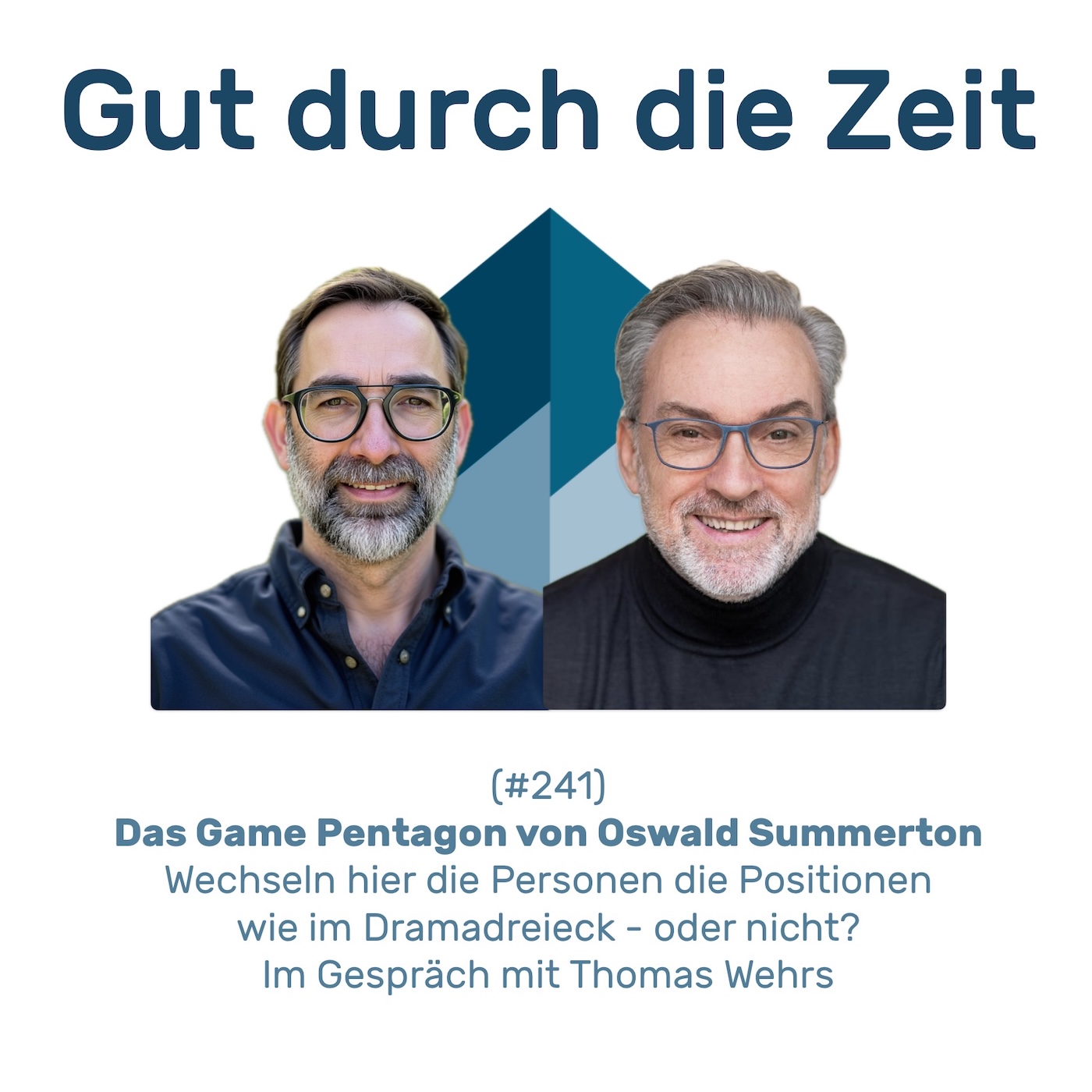INKOVEMA Podcast „Well through time“
#241 GddZ
The Pentagon Game by Oswald Summerton
Do people change positions here like in the drama triangle - or not?
In conversation with Thomas Wehrs
Studied practical philosophy, specialising in business ethics. As a coach and supervisor, he supports organisations, companies and people in change processes. Professional coach (DBVC) and coach and supervisor (EASC). Teaching transactional analyst (PTSTA-O)
Small series: Concepts of transactional analysis
Contents
Chapter:
detailed summary
In this episode of the podcast "Gut durch die Zeit", I join Thomas Wehrs to explore the concept of the Game Pentagon, an extension of transactional analysis that deals with the dynamics of interactions in organisations. We shed light on how the Game Pentagon, also known as the Game Pentagon, is characterised by was developed on the basis of Eric Berne's classical game theory and how it differs from well-known concepts such as the drama triangle.
The GamePentagon enables us to analyse the multi-layered roles that people can take on in organisations in a differentiated way. While the drama triangle predominantly describes dysfunctional interactions, the GamePentagon recognises that positions can be both functional and dysfunctional, depending on the perspective of those involved. In this episode, we delve into the five positions within the GamePentagon: the Stage Manager, the Bystander, the Saviour, the Scapegoat and the Sniper. Each of these roles brings its own challenges and opportunities that need to be considered on both an individual and organisational level.
An important aspect that we discuss is the complexity that arises from the interactions of these roles. I explain how a person can switch between these positions in practice and what impact this has on the dynamics within a team. These switches can often lead to misunderstandings that cannot be captured in a traditional understanding of the drama triangle. We also discuss how the GamePentagon shifts the focus from individual blame to systemic dynamics, providing a better understanding of the interplay between people and organisations.
We will also look at the practical application of the GamePentagon in coaching and counselling situations as well as in supervision. I share examples from practice in which the GamePentagon serves as a model for thinking and acting to help clients better recognise and reflect on their roles in an organisation. We discuss how this reflection can help to eliminate misunderstandings and break down communication barriers in order to improve the team climate.
Through practical exercises and case studies, we illustrate how the Game Pentagon can help coaches and consultants to better navigate complex situations and facilitate constructive dialogues within teams. To summarise, this episode provides a comprehensive analysis of the Game Pentagon and its relevance for combining psychological and systemic perspectives in transactional analysis.
Complete transcription
(AI-generated)





Leave A Comment